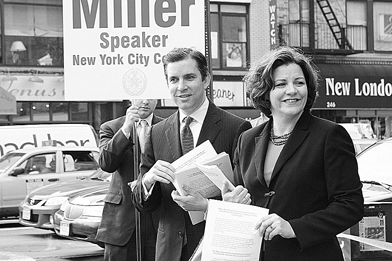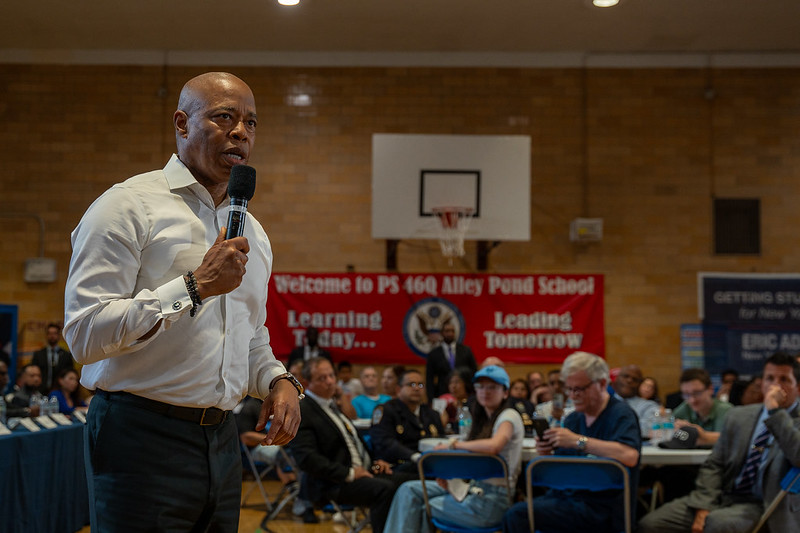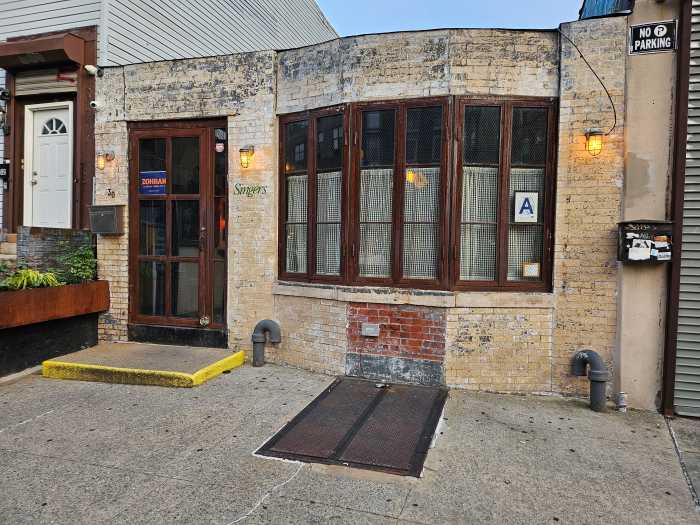By Jefferson Siegel
Last Thursday morning, bleary-eyed commuters on their way to work were greeted by City Councilmember Christine Quinn and Council Speaker Gifford Miller, who is running for mayor. But this was not a campaign appearance. The pair stood at the 23rd St. entrance to the Eighth Ave. subway to lobby support to oppose construction of the West Side stadium.
A week earlier, the Metropolitan Transportation Authority, owner of the West Side rail yards over which a stadium would be built, selected a bid from the Jets football team, passing over competing bids including one from Cablevision, the owner of Madison Square Garden.
Following the selection of the Jets plan, Cablevision early last week filed a lawsuit in State Supreme Court against the Jets and the M.T.A. In part, the suit claims the bidding process was unfairly biased in favor of the Jets and seeks an injunction against the sale.
Miller and Quinn came to the neighborhood that will undergo the most change if a stadium is eventually built alongside the Hudson River. Speaker Miller took a moment from greeting commuters and handing out fliers to explain his position. “I’m going to pass legislation with Christine and my other colleagues that will ban the use of public funds without a vote of the City Council,” Miller said. “The mayor is planning to spend, at this point, $750 million worth of city-taxpayer dollars on this stadium and I’m not going to approve that and I don’t think my colleagues are either, so we’re going to try to stop this on the money as well.”
One of the contentious issues of the bidding process was the Jets’ original $100 million bid, considered low by many in a time of transit service cutbacks and fare increases, and its reliance on city and state funding for construction costs.
Quinn commented on the recent bidding war and lawsuit. “There’s already been one lawsuit leveled against the project,” she said. “There will be more lawsuits leveled against the project, so I think the combination of the Public Authorities Control Board, the Council’s budgetary legislation and the lawsuits and perhaps other zoning actions will eventually stop this project.”
She was referring to the next step in the process, which is approval of the plan by the state Public Authorities Control Board and the Empire State Development Corporation, the latter which approved the stadium plan on Tuesday. The P.A.C.B. is controlled by Governor Pataki and the state’s highest legislators, Democratic Assembly Speaker Sheldon Silver and Senate Majority Leader Joe Bruno. Opposition is expected by Silver, who continues to express concern over a lack of funding for the ongoing rebuilding of his Lower Manhattan district. And the day before, a spokesperson for Bruno said the Senate leader is concerned by the legal issues addressed by the suit.
Quinn and Miller were asked if they think sentiment for a West Side stadium might change if the Olympic Selection Committee chooses New York in July. “I think the public sentiment is very clearly for the Olympics and against a West Side stadium,” said Quinn. “I think both of those sentiments will appropriately continue whether we’re chosen or not.”
Miller added, “I think the mayor has grossly undermined our Olympic application by tying the entire thing to a West Side stadium with so many holes in the plan. But, if we were to win the Olympics, I still think it would make sense for us to build a stadium in Queens where it would be less expensive, more appropriate, and build the housing and hotels and commercial development on the West Side rail yards that we need.”






































